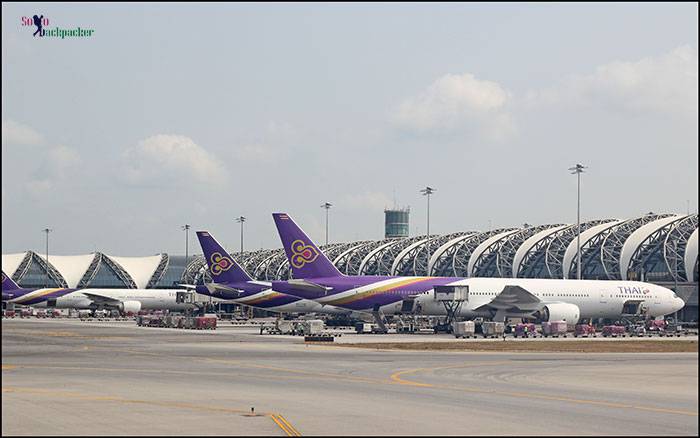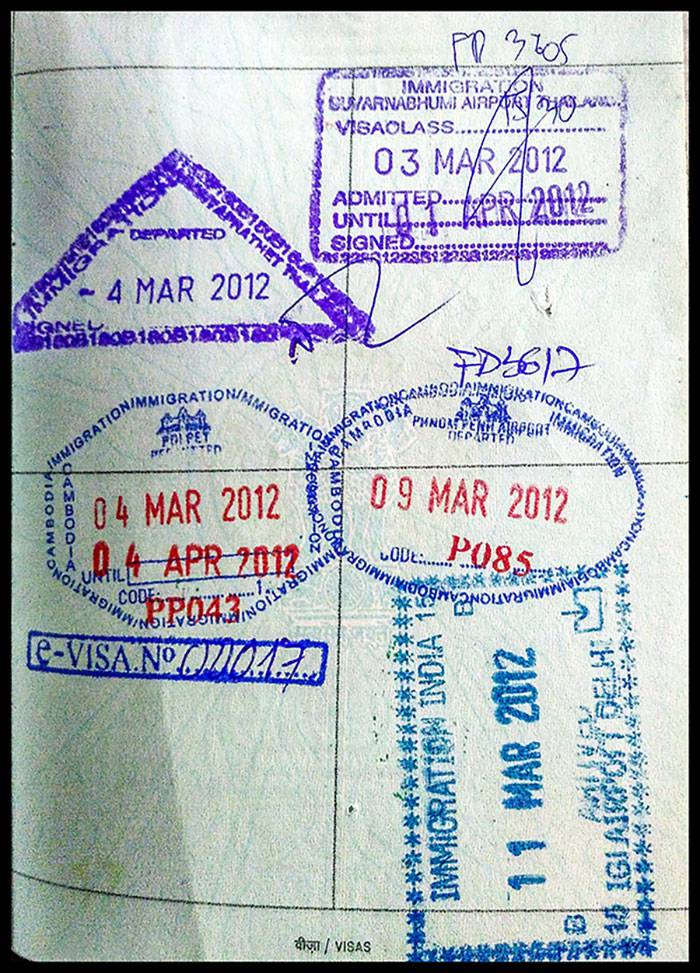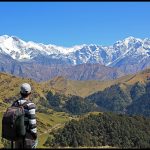Preparation for the first international trip is a kind of mixed bag, where you are half scared and half excited. There is so many tasks involved before the departure like passport, visa, flight tickets etc that can give you nightmares, but it is the charm of seeing a new country different from your own that keeps you going. The though of flying abroad is itself exciting.
International travel is not like a domestic travel, where you can just pack a bag and leave the home in an unknown territory. At least, first international trip needs some sort of serious preparation. Once you get an idea of international trips and procedures involved like passport, visa, currency exchange etc; then you can travel to many places in the world just like domestic trips as long as you are eligible for visa free entries.
For the first international trip, you have to think about many things; passport, visa, tickets, travel insurance, accommodation, language etc. Let us see in details that what should you do while preparing for the first international trip.
Contents
-
- What Is A Visa?
- Types of Visa Based On The Approval
- Types Of Visa Based On The Entry
- Types Of Visa Based On The Purpose
- Most Common Requirements During Visa Application
- Is It Possible To Get A Visa Without Showing Up Personally?
- Does A Valid Visa Always Guarantee An Entry?
- Visa Validity
- Duration of Stay on Each Entry
- Re-Entry Permits
- Visa Extension
- Is It Possible To Get A Visa While Travelling?
- Passport And Visa Are Two Separate Documents
1. Get A Passport
What Is A Passport?
A passport is a document issued by the national government for the purpose of international travel to certify the identity and nationality of its holder. The elements of identity are name, date of birth, sex, and place of birth.
Most countries accept passports of other countries as a valid identification document for the international travel and may allowed a passport holder to enter in their country subject to the visa formalities. There are exceptions, such as when a country does not recognize the passport-issuing country as a sovereign state. Likewise, the passport-issuing country may also stamp restrictions on the passports of its citizens not to go to certain countries due to poor or non-existent foreign relations, or security or health risks.
If you wish to travel abroad, the first thing is to get a passport for yourself. The details regarding Indian Passport, Application forms and Fee are available at the passport division website:
Consular, Passport and Visa Division: Government of India
Types Of Passport
There are three types of passport issued in India:
a) Regular Passport: It has a Navy Blue Cover and is issued to the ordinary citizens of India for the purpose of leisure or business trips to the international destinations.
b) Official Passport: It has a White Cover and is issued to the government officials who travel abroad on official business.
c) Diplomatic Passport: It has a Maroon Cover and is issued to the Indian Diplomats, Top ranking government officials and diplomatic couriers. Holders of this passport get special treatment at the immigration. They also enjoy diplomatic immunity in the other countries.

Your Rights As A Passport Holder
A passport does not of itself entitle the passport holder entry into another country, nor to consular protection while abroad or any other privileges. It does, however, normally entitle the passport holder to return to the country that issued the passport. The passport holders are individually responsible for their travel choices, their safety, finances and behaviour overseas, including obeying the laws of the country they are visiting.
On the case to case basis, an Indian consulate in that country may help you upto certain extent only. These types of help mainly limited to your safe passage to your home country under the laws of the foreign country. A consulate never intervene in another’s country court proceedings or legal matters arises due to your presence in that country.
Is it Possible to Travel Without A Passport?
In a normal scenario, you can not travel to a foreign country without a passport. Nepal and Bhutan are the only exceptions as a result of reciprocal treaty arrangements. Similar agreement also exist between the members of European Union, where their citizens can travel within the European Union without a passport.
If your passport is stolen or lost while abroad, then you may (not necessarily) get a special travel document issued by your consulate in that country. The special travel document (Emergency Certificate) may allow you one way travel to enter in India. Another example is in the case of refugees. Millions of refugees cross borders without passport as they flee persecution or fighting. In such cases, it’s upto the receiving country whether they wish to accept them into their country without a passport.
What Should You Do In Case Of Passport Theft?
If your passport is lost, stolen or destroyed in a foreign country, then you should immediately file a report to the nearest Indian embassy or consulate. Although filing a police report isn’t necessary, but if you can, then file a police report also. Keep a photocopy of your passport in a safe place, separate from your original passport. The photocopy will help in faster processing for getting a duplicate passport.
Is It Possible To Get A Passport While Travelling?
If you are continuously travelling and exhausted the pages of your passport, then you can apply for a new passport at the nearest Indian Embassy. In many cases, the entire process takes about one month time. So, in such situations please apply well in advance.
2. Check Your Visa Status
What Is A Visa?
A visa is a document showing that a person is authorized to enter the territory for which it was issued, subject to permission of an immigration official at the time of actual entry. The authorization may be a document, but more commonly a stamp endorsed on the applicant’s passport. Some countries do not require a visa in some situations, such as a result of reciprocal treaty arrangements. The country issuing the visa typically attaches various conditions of stay, such as the territory covered by the visa, dates of validity, period of stay, whether the visa is valid for more than one visit, etc.
A visa generally gives non-citizens a clearance to enter in a country and to remain there within specified constraints, such as a time frame for the entry, a limit on the time spent in the country, and a prohibition against employment.
Types of Visa Based On The Approval
You can get a visa approval prior to your departure from the home country, or after arrival at an immigration checkpoint in the foreign country or online approval from anywhere. There may be cases where you don’t need a visa approval at all.
1. Stamped Visa: This is the most common visa approval. In case of an Indian Passport holders, a stamped visa on the passport is required to enter in large number of countries such as United States, United Kingdom, European Countries, Russia, China etc . Such type of application can be submitted to the consulate/embassy of that country in India.
In many cases, such applications may also be submitted through the authorised visa facilitation centres like VFS, CKGS etc. After the approval of visa, you get a stamped visa endorsed on your passport with all the relevant details regarding visa validity, number of entry, duration of stay, employment status etc.
2. Visa-On-Arrival: Few countries offer Visa-On-Arrival (VoA) facility to the Indian citizens, for example, Thailand, Jordan, Ethiopia, Laos etc. In this case, you simply turns up at the immigration checkpoint of that country either by land, sea or air; submit the required documents and pay the required fee. After necessary verification, they stamp your passport with Visa-on-Arrival seal containing the relevant details regarding visa validity, number of entry, duration of stay etc.

Every immigration checkpoint does not issue a visa-on-arrival. For example, you may get a visa-on-arrival at Yangon Airport while entering by Air, but you may not get a visa-on-arrival while entering in Myanmar through Moreh-Tamu Land Border. A pre-approved e-visa or stamped visa is required in this case.
3. Electronic Visa (e-Visa): Few countries offer online e-visa to the Indian citizens, for example, Singapore, Malaysia, Cambodia etc. In this case, you apply for the visa and submit all the required documents online. In 3-4 days period (or more depending on the country), you get a pre-approved electronic visa in your mailbox.
4. Visa Free Access: There are few countries like Macau, Maldives, Indonesia, Mauritius etc that provide visa-free access to the Indian citizens for a certain duration. The process is similar to a visa-on-arrival, but you are not required to pay any kind of visa fee in this case. Nepal and Bhutan provide freedom of movement to the Indian citizens, where you can enter without a passport or visa with other acceptable identity proofs.
Types Of Visa Based On The Entry
A visa can be valid for one entry, two entries or multiple entries within a specified period of time.
1. Single Entry Visa: Valid for single entry only. If you enter in a country on the single entry visa and leave the country within few hours, your visa validity would be over.
2. Double Entry Visa: Valid for two entries only during the period of visa validity.
3. Multiple Entry Visa: Valid for multiple entries during the period of visa validity.
Types Of Visa Based On The Purpose
1. Transit visa: Usually valid for 5 days or less, for passing through the country to a third destination. For example, if you want to visit Thailand from India for 14 days and then want to go to Cambodia from there, you can get 15 days transit visa in Thailand, which allow you to stay in Thailand for 15 days.
2. Airside Transit Visa: Required by some countries for passing through their airports even without going through immigration clearance.
3. Tourist Visa: Also known as Visitor Visa. Valid for a limited period of leisure travel and no business activities are allowed. Some countries do not issue tourist visas. Saudi Arabia introduced tourist visas only in 2004 although it did (and still does) issue pilgrimage visas for Hajj pilgrims. It costs more than the transit visa.
4. Business Visa: For engaging in commerce in the country. These visas generally preclude permanent employment, for which a work visa would be required.
5. Student Visa: Allows its holder to study at an institution of higher learning in the issuing country. In few countries like Algeria, students get a tourist visa.
Other types of visa may include Medical Visa, Conference Visa, Employment/Work Visa, Long-Term Stay Visa, Spouse Visa, Sports Visa etc depending on purpose of your travel to that country.
Most Common Requirements During Visa Application
In case of many countries, a tourist visa application should be supported by these three documents: Return Air Ticket, Proof of Finances, Proof of Accommodation. In many cases return air ticket or accommodation booking is not required and in other cases they may ask for the additional documents like Form 16, ITR, leave approval letter from your employer etc etc.
The idea behind the documentation is that you should be able to satisfy the authorities that you would definitely return to your country after completing your trip. Proof of finances and accommodation also demonstrates that you are in a good financial position to make a decent living in your host country.
They should not have any apprehension that you would overstayed your visa to stay there as an illegal immigrant. This is the only idea behind all type of visa documentations and interviews during the application process.
Is It Possible To Get A Visa Without Showing Up Personally?
Yes, but it varies from country to country. In case of some countries, you can apply for a visa though a visa agent; while in some cases, a friend, a family person or a relative can apply on your behalf. Few countries ask you personally for the visa applications, while few other may held a personal interview.
Does A Valid Visa Always Guarantee An Entry?
The possession of a visa is not in itself a guarantee of entry into the country that issued it, and it can be revoked at any time. A visa application in advance of arrival gives the country a chance to consider the applicant’s circumstances, such as financial security, reason for applying, and details of previous visits to the country. A visitor may also be required to undergo and pass security and/or health checks upon arrival at the border.
The border crossing authorities make the final determination to allow entry, and may even cancel a visa at the border if the visitor cannot demonstrate to their satisfaction that they will abide by the status their visa grants them.
In case of Georgia, many Indian visitors have turned away from the Tbilisi Airport despite of having a valid e-visa or stamped visa. During the recent Corona outbreak, many governments revoked the tourist visas through a blanket order and asked visitors to return to their home countries.
Visa Validity
Once your visa application is approved and you get a visa, then you are supposed to use that visa within a specified period of time. That period is the validity of your visa. This validity period may vary from three months in case of single entry visa to ten years in case of multiple entry visa.
Duration of Stay on Each Entry
Suppose your multiple entry visa is valid for ten years, it does not mean that you can stay in that country for continuous ten years. Each entry in that country entitles you to stay in for a particular duration. After that you have to leave that country. You can again enter in that country to stay for a particular duration and the process continues for ten years, i.e. till the validity of your visa.
Similarly, in case of single entry visa if you are allowed to stay in for 15 days only, then after spending 15 days in that country you are supposed to leave. You can not enter again despite of having a visa validity upto three months.
Re-Entry Permits
I lost around INR 10,000 and 2 days of my trip during my first trip in absence of a proper guidance on re-entry permit. Suppose, you have double entry transit visa for Thailand and used it twice at the Bangkok airport. Now, you are planning to go out to Cambodia by road. If you cross Aranyaphrathet Border from Thailand to enter in Cambodia, the validity of your double entry visa is expired, since you have already entered in Thailand twice via Bangkok Airport.
To enter in Thailand again, you need a new visa from embassy or you can get a visa-on-arrival while returning from Cambodia. First scenario holds good for the purpose, but in case of the second scenario, the visa-on-arrival is issued only at certain immigration checkpoints. It was not available at famous Poipet-Aranyaprothet Border crossing between Cambodia and Thailand (It is available now, but I still use this example for the purpose of understanding). In that case, you have to fly to Bangkok Airport to get a visa-on-arrival.
Here re-entry permit comes in picture. Suppose your second entry visa in Thailand is valid until 15th April and you plan to enter in Cambodia on 3rd April. You want to enter in Thailand again because your return flight to the home country is from Bangkok on 14th April, i.e. before the expiry of visa validity. In this case, you can apply for a re-entry permit at the border checkpoint by paying 1000 Thai Bath that helps you to enter in Thailand without getting a new visa. This way you need not to fly to the Bangkok airport to get a visa-on-arrival. You can enter in Thailand by road only. At Bangkok Suvarnbhumi Airport, a re-entry application can be made one hour prior to your departure from the airport on the same day of departure.
Visa Extension
After expiry of the duration of stay, if you want to stay for more time, you may apply for a visa extension. The duration of extended stay depends on the type of original visa and may varies from country to country. Some countries do not allow any kind of visa extension. Some countries do not allow visa extension for certain types of visa.
Is It Possible To Get A Visa While Travelling?
It is not mandatory to apply for a visa from the home country only. You may apply for a visa for other countries at the consulates based in another country, while traveling for the longer duration. Some consulates may not allow such application, but with a little bit of persuasion, you should be able to apply.
Passport And Visa Are Two Separate Documents
I meet a lot of people who are confused between a Passport and a Visa. The Passport is a proof of your nationality, which is issued by your own country and generally a must document for an international travel. The Visa is an authorization from the destination country for your entry in that country and smooth passage through that country governed by laid restrictions.
While passport is a mandatory document to obtain before an international departure, a visa may not be necessary to obtain. According to the “Henley Passport Index 2020”, holders of a Japanese passport can visit 191 countries visa-free or with visa on arrival, while Australian citizens can travel to 183 countries visa-free / with visa on arrival. Americans can travel to 185 countries visa-free, or with visa on arrival. Some 58 countries and territories provide visa-free or visa-on-arrival access to the holders of Republic of India passports.
3. Buy Air Ticket
There are many low-cost airlines where you can book your tickets cheaply. Some regular carriers also offer flights between a sector that may be comparable to the low-cost carrier. Before booking a ticket, take your time to find the best fare deals for you.
You should read this post about some tips for booking a cheap flight ticket: Tips to Buy Cheap Flight Tickets
4. Book Hotel Accommodation
Accommodation is a crucial requirement for any trip. There are many hostels and cheap hotels around the globe, where you can book a budget accommodation. You should try 3-4 hotels aggregator apps or websites, before booking a property. Before making a final decision, you must pay attention to the user reviews of that hotel/hostel. It may not be correct, but you can get a good idea after reading few reviews.
Agoda offers the best choices for hotels in Asia Pacific. Booking is a nice app to book hotels in Europe and America. Both websites are now acquired by Priceline and offers choices from 1-star to 5-star hotels. Hostels can be searched worldwide on the Hostelling International, Hostelworld and Hostelbookers app. In India, Zostel is a good choice to search for a hostel.
In my personal experience, the hotels give upto 20% of the booking cost to the aggregators like Agoda as a commission. When I extended my stay in Hong Kong, I got that 20% concession from my hotel. If you plan to stay longer in a city, then it is good to book a hostel/hotel for initial 3-4 days online. Thereafter, you can search a property directly at your location. It may save your money.
In another case, I paid USD 7.00 at Agoda for a hotel booking in Siem Reap (Cambodia), but when I extended my stay there, I again paid USD 7.00 only. In that case, the direct dealing with the hotel did not help me. It also happened with me that when I asked direct concession from the hotel reception, they advised me to book it online through an aggregator because that was a cheaper option that time. You can see that it varies with a case to case basis.
While booking on Oyo app, you should be cautious with too much discount. It happened with me in Meghalaya as well as in Delhi. I booked properties on Oyo app, but they refused to honour that booking after reaching there. They said that discount offered was too much by Oyo and not sustainable for their businesses. They also informed that they already requested Oyo to remove them from their list, but Oyo was yet to take any action. So, if you book a hotel on Oyo app, it’s better to call them in advance and check your booking status prior to your arrival at that property.
5. Buy Travel Insurance
Travel insurance is an insurance that is intended to cover medical expenses, financial constraints, and other losses incurred while traveling, either within one’s own country, or internationally. Temporary travel insurance can usually be arranged at the time of trip booking to cover exactly the duration of that trip, or a “multi-trip” policy can cover an unlimited number of trips within a set time frame. Coverage varies, and can be purchased to include higher risk items such as “adventure sports”.
For a domestic travel, travel insurance is generally not necessary, but depends on an individual choice. For an international travel, it is highly recommended to buy a travel insurance. There are lot of varying circumstances in unknown foreign land, where travel insurance can pay a crucial role in your survival.
It’s mandatory to take a travel insurance before applying for the visa in all of the 15 Schengen countries. This cover can really come in handy as the cost of medical treatments in the US as well as Europe is steep. Remember that when you travel to the US or any European country, you move to a higher price index zone. You may a medi-claim policy in your country, but in most of the cases that does not cover the medical expenses once you cross your international border.
For a good travel insurance it is advisable to buy the insurance that offers at least USD 2,00,000 cover on Medical Expenses, Evacuation and Repatriation of Remains cover in case of any emergency. Your travel insurance also covers the cost related to Trip Delay, Hijack, loss of checked baggage, delay of checked baggage, loss of passport etc.
Check this comprehensive guide to know more about the travel insurance: A Comprehensive Guide To Buy Travel Insurance
6. Arrange Money
Arranging money is also an integral part of an international trip. You should be able to carry your money in smart way to avoid unnecessary charges related to the international transactions. While carrying cash in the destination currency is the best thing, but it is always susceptible to the theft and burglary. You can carry an International Debit Card to withdraw money in local currency through an ATM, you can also carry a Credit Card to pay for your international expenses. Prepaid Forex Card is an option to keep you safe from the fluctuations in currency prices.
Read this post to get some insight on money management during an international trip: Managing Money While Travelling Abroad
7. Ensure Mobile Connectivity
Round the clock mobile connectivity is a way of life now. It is actually a necessity and it’s difficult to stay away for few days from your dear one. Luckily, there are many options to stay connected with the friends and family:
International Roaming
The simplest but a costly option. You can ask your mobile operators to activate the international roaming for your mobile number. After that, you can simply use your own mobile worldwide to stay connected.
World Calling Cards
You may find few executives from the company like Matrix selling a world calling card in the airport terminal. The world calling cards ensure a seamless connectivity during an international trip, but they are also very expensive.
Local SIM Cards
The best option that you should chose to ensure mobile connectivity. Buying a local SIM card in a destination country is fairly easy. You can just go to any shop selling SIM card and ask for a pre-activated SIM cards loaded with the data or call facility. They normally need your passport copy as an identity proof. Except few large countries like Russia, India or China; many countries do not have roaming charges for the nationwide travel. Even in the large countries, mobile carriers are waiving off their roaming charges. It means that you have to buy a SIM only once to travel through the entire country.
Data Cards or Calling Cards?
With the arrival of applications like WhatsApp, Duo, WeChat, Skype etc; there is no need to get a calling card. Data charges are cheaper in many countries in comparison to the calling charges. So, it’s better to buy a SIM card loaded with plenty of data rather than calling facility.








Very great information can be found on this web site.
As I website owner I believe the content material here is real wonderful, regards for your efforts.
very informative..though i have traveled abroad….i will still book mark this post to always read as a reminder before preparing for my abroad trips!!!